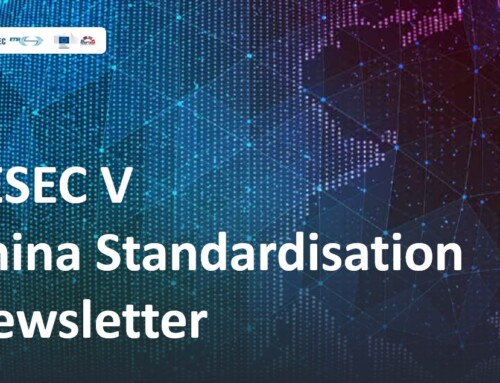Quzhou, Zhejiang, May 24 — The Second China Standardization Conference, hosted by the China Association for Standardization, convened from May 22 to 24 in Quzhou, Zhejiang. The event attracted over 1,300 standardization professionals and enterprise representatives from both domestic and international fields. More than ten renowned experts and scholars shared insights on the layout and policy direction for national standardization development, highlighting achievements and practices in standards digitalization, quality productivity, green and low-carbon initiatives, artificial intelligence, and association standards development. Discussions emphasized the fundamental and leading role of standardization in supporting economic and social development.
Keynote speakers at the conference included:
- Zhao Xiangeng, Academician of the Chinese Academy of Engineering, discussed “Several Thoughts on Association Standards.”
- Fu Wenbiao, First Inspector of the Standards Innovation Department of SAC, addressed “Expanding the Level of Openness of China’s Standardization and Making Positive Contributions to High-Quality Development.”
- Shu Yinbiao, former President of IEC, spoke on “International Standards Supporting the Development of New Quality Productivity.”
- Zhang Xiaogang, former President of ISO, presented “The Development Trend of Standards Digitalization.”
- Zhang Gang, a member of the National Manufacturing Power Construction Strategy Advisory Committee, covered “Standardization: The Engine of New Quality Productivity Development.”
- Wang Haizhou, Academician of the Chinese Academy of Engineering, highlighted “The Quality Foundation Support for Promoting High-Quality Development of New Quality Productivity.”
- Zhang Jianwei, foreign academician of the Chinese Academy of Engineering and Academician of the German Academy of Science and Engineering, discussed “Modular Construction and Innovation Implementation of General Artificial Intelligence.”
- Luo Fangping, President of CNIS, focused on “Standards Enhance Consumption Upgrading and Promote High-Quality Economic Development.”
In conjunction with the main conference, the ESG (Environmental, Social, and Governance) sub-conference shed light on China’s efforts in standardizing ESG-related fields. Key highlights included:
Environmental Management and Carbon Emission: China has developed over a hundred national standards in ESG, covering environmental management, carbon emission management, energy and water conservation, resource recycling, social responsibility, supply chain management, compliance management, and green finance.
Association Standards: According to the National Association Standard Information Platform, 62 ESG association standards have been released, covering ESG information disclosure, evaluation, reporting, requirements for institutions and personnel, and management systems across various industries. However, challenges such as lack of industry-specific differentiation, overlap, redundancy, and conflicts among standards persist.
Development of the ESG Standards System: China is advancing an ESG standards system following the “1+N” model, where “1” represents government standards providing principles and frameworks, and “N” denotes association standards addressing information disclosure, management, and performance evaluation needs.
Overall, the conference underscored China’s vigorous efforts to promote sustainable and high-quality development through standards. By addressing key areas such as environmental management, carbon emission reduction, digitalization of standards, and the creation of association standards, China is demonstrating a strong commitment to leveraging standardization as a foundational and leading tool in driving economic and social progress.




